12 things every first time gardener needs to know
Get your green fingers going with our essential list for gardening novices
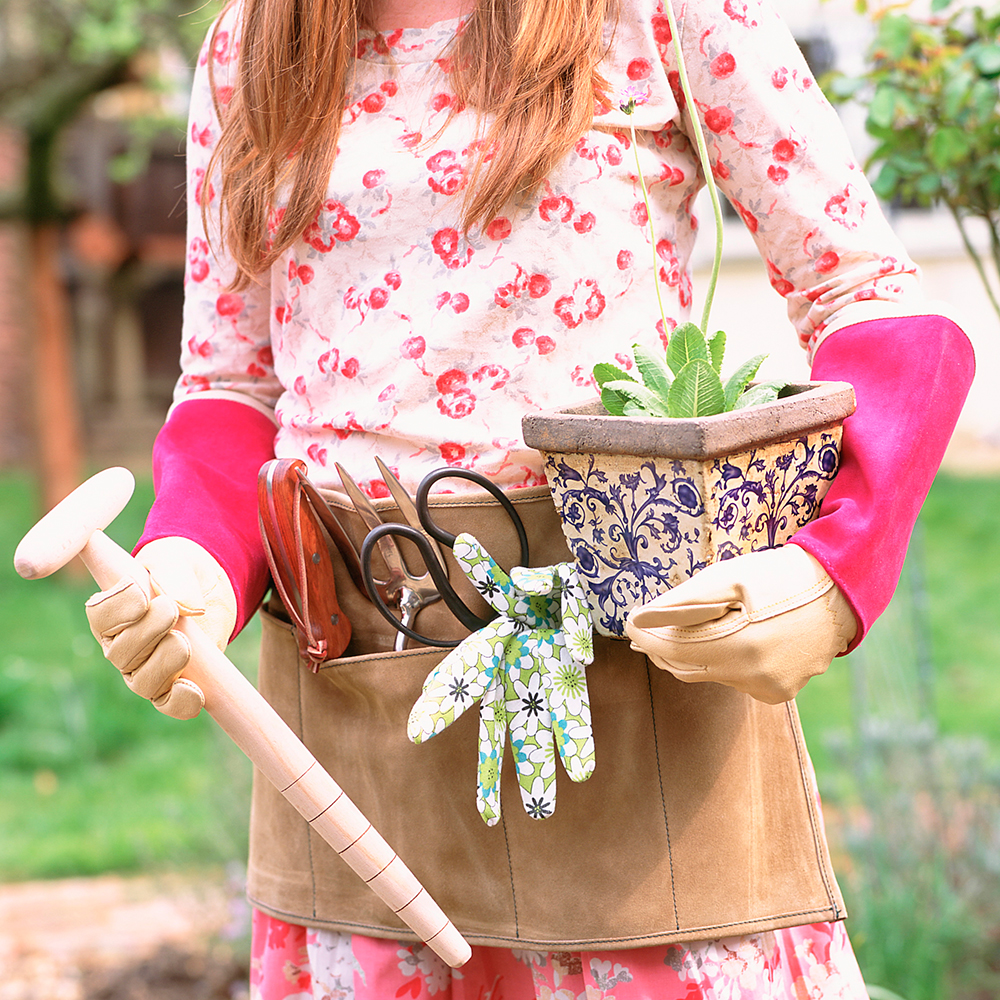
So you've been wishing for your own piece of outdoor garden space for so long but now you have it you're mystified by the thought of what to do with it. Fret not, before you don your new gardening gloves take a look at our quintessential list of 12 things every first-time gardener needs to know and how to tackle them before you start.
1. You'll need the right tools for the job
Must-need tools will vary from garden to garden and gardener to gardener but there is a vital list to help get you started in style: Gardening gloves to protect your hands; Pruning sheers to trim lawn edges, hedges and shrubs; Trowel and fork for bedding plants, potting and weeding; Garden string for tying plants and climbers and marking boundaries when digging; Shovel for digging; Rake for collecting leaves and clearing lawn; Broom for sweeping decking and patios; Hose and/or Watering can for watering; Lawnmower for gardens with lawns.
2. You'll need somewhere to store your tools
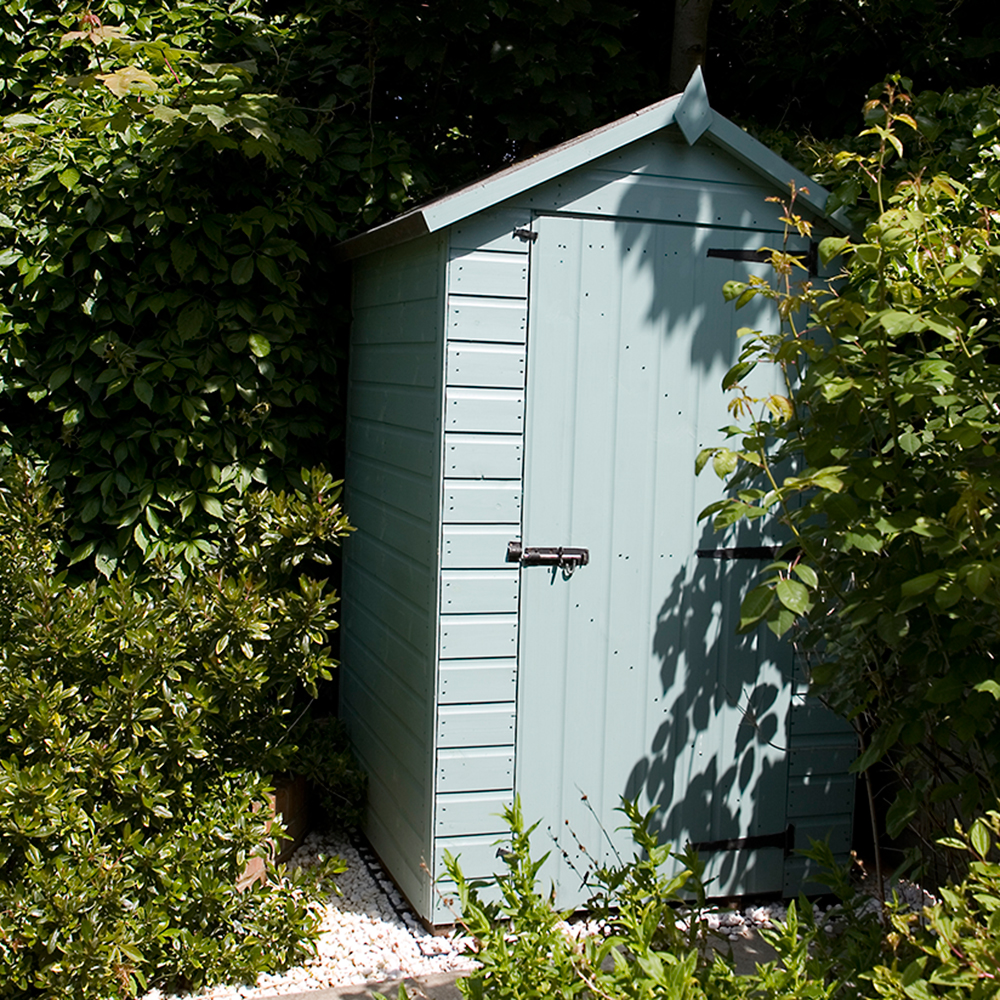
You've been to the garden centre and stocked up on what feels like everything, but, in order to keep your shiny new toolkit in good condition and rust-free, you'll need to store them somewhere that is dry and safe so they last a good while. Garden sheds are the obvious answer but if you are short on space (and cash) there are plenty of alternatives to look out for like smaller wooden tool stores, wall-mounted garage and fence shelving and plastic rattan replica lift-lid boxes.
3. Lawns need love too
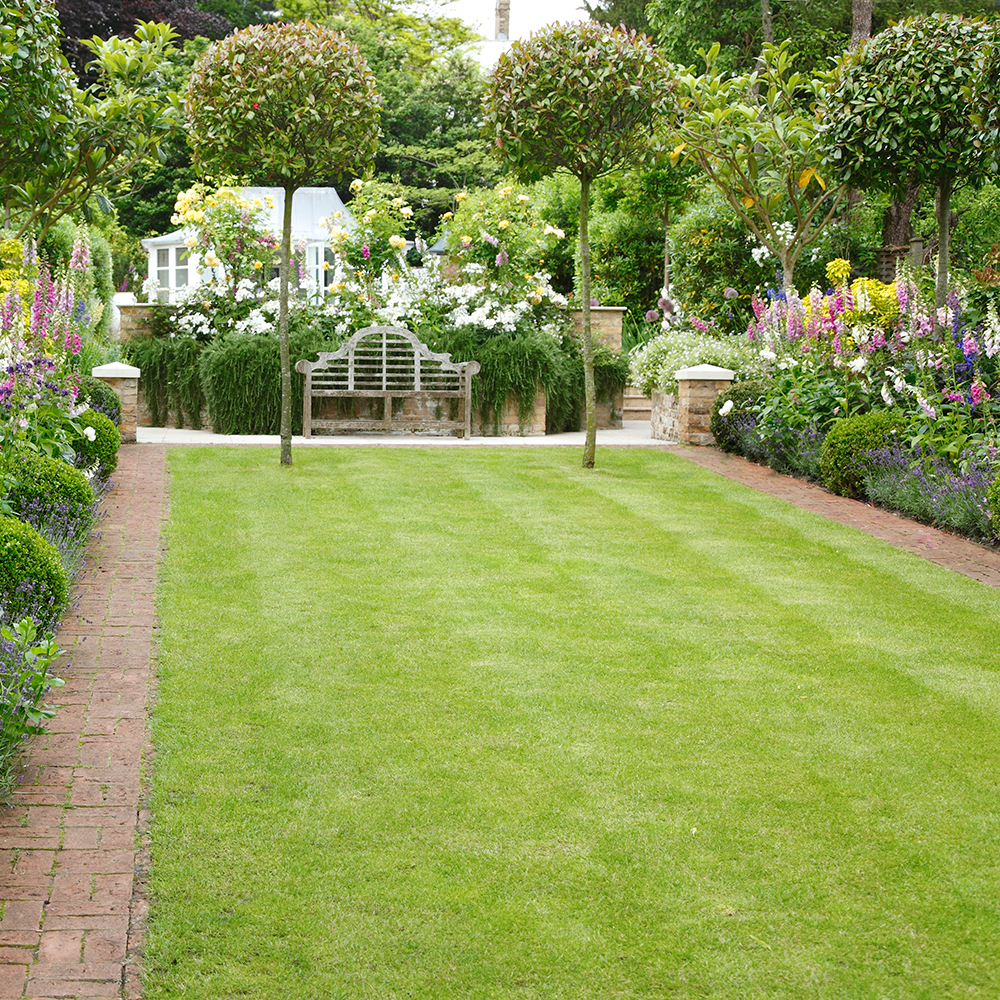
Looking after your lawn is quite an important job as how it looks will affect your overall garden. Bowling green perfect lawns need A LOT of attention but regular more relaxed grass only needs a little TLC throughout the seasons to keep it looking it's best. Spring is when it needs the most attention as it has survived the cold, wet winter and is ready to start growing again. Edges can be repaired, patched and trimmed, you may need to apply a moss killer, create holes for water drainage and you'll need to start the mowing again. Begin with your blades on a high cut setting and little and often is the way to go. Be sure to regularly cut in varying directions to keep the grass upright and healthy. Continue to mow regularly throughout the year re-seeding patches if necessary. If the weather gets hot keep the grass well watered and keep weed killers away as it will burn the grass. In the autumn keep your lawn raked of leaves, apply feed and aireate (spike) ready for winter.
Get the Ideal Home Newsletter
Sign up to our newsletter for style and decor inspiration, house makeovers, project advice and more.
4. Pots and containers need more than just rainwater to survive
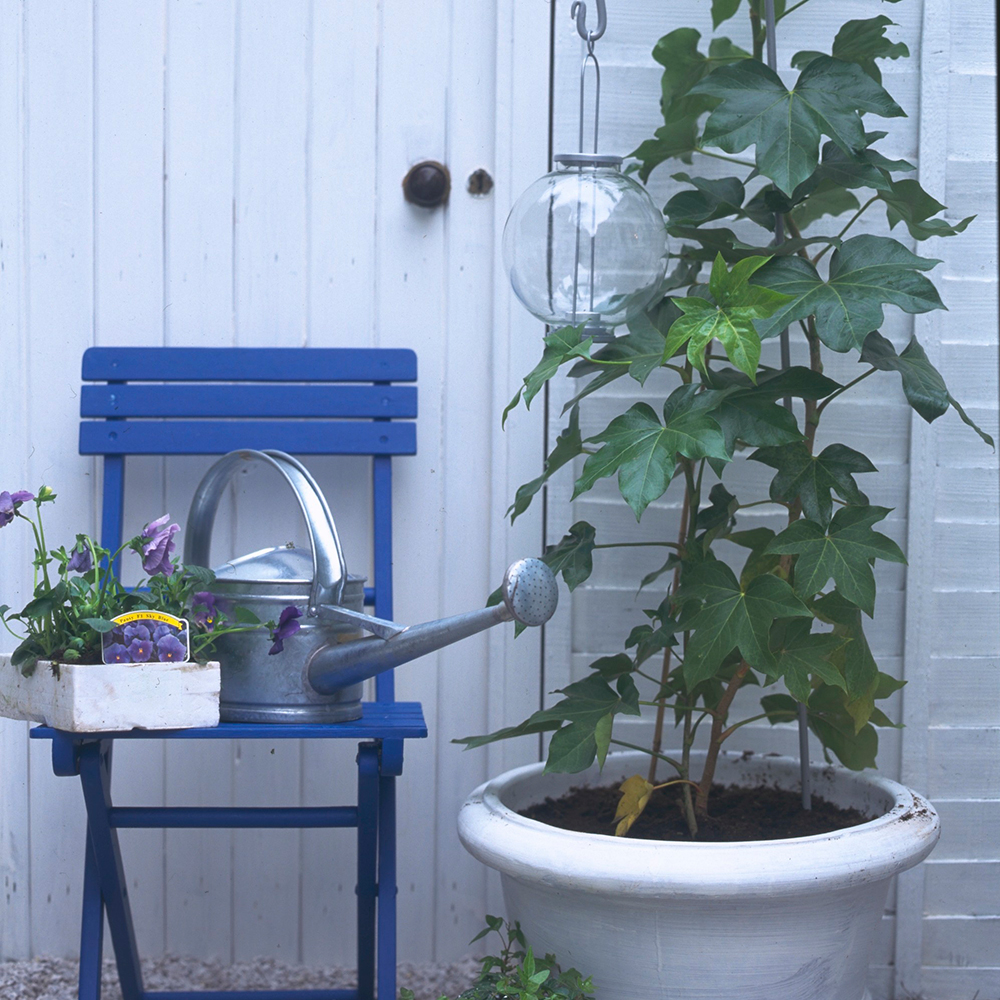
Pots on your patio are a great way to add colour, structure and character but keeping those roots cooped up in a confined space means they don't get the chance to soak up natural water and soil goodness. When potting, add plenty of drainage at the bottom by adding stones or broken crockery to the lowest point before the compost goes in then keep them regularly hydrated with a good drink every couple of days. They'll also reap the benefits of plant food once in the while for an extra boost. One rookie mistake to be aware of is try not to over-tend; don't over water or move things around too much as plants like to settle into their surroundings slowly.
5. Invest in a water butt
You've guessed by now that gardening can be expensive so do your plants the environment as well as your wallet a favour and invest in a good sized water butt (as long as you have a downpipe). Not only is the rain water free its better for your plants than tap water.
6. Know your soil
Yes, that's right there is more than one type. You could have sandy, clay-chalky or peat soil and different plants like different soil types so you'll need to do your homework to find out what you have. Take a step back and look at how things are growing. Lots of weeds mean the soil in that space is pretty fertile. Also, beds will benefit from a covering of new top soil (compost from the garden centre) each year which will freshen up your plants and garden instantly.
7. Weeding is never-ending
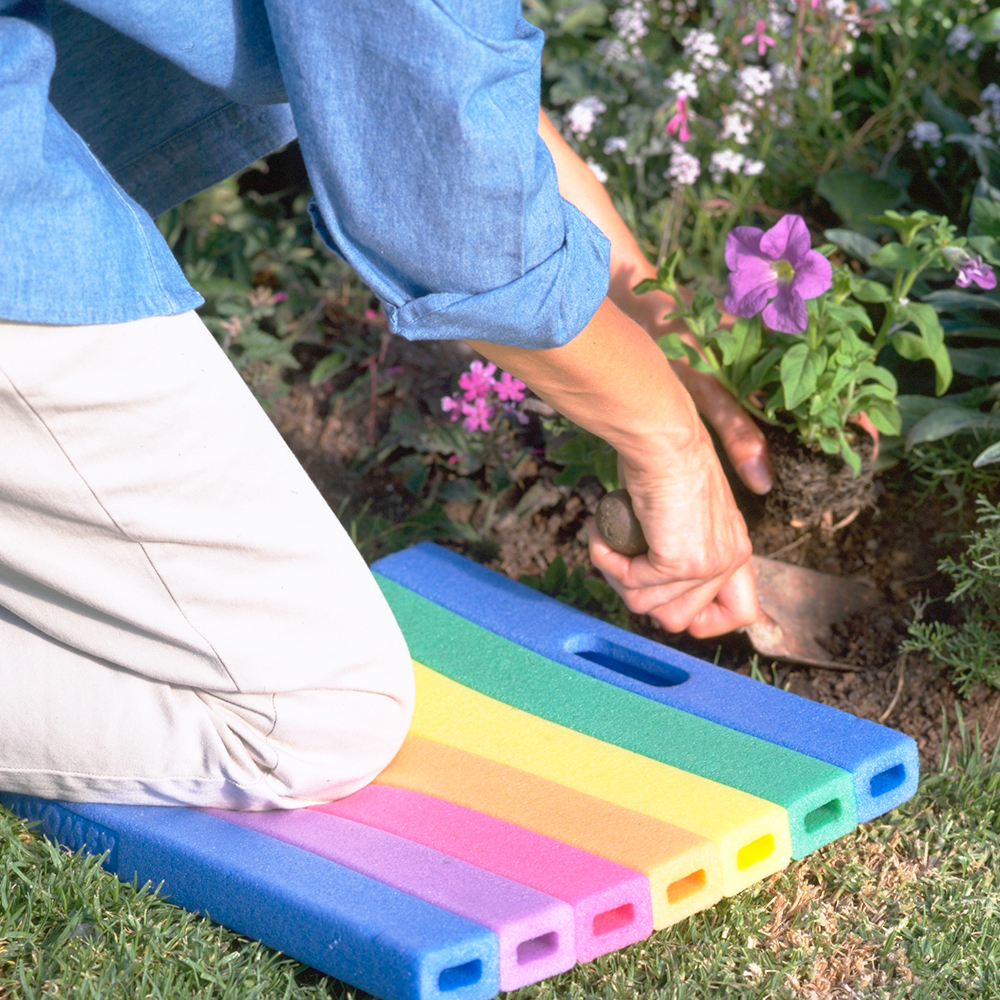
Let's face, it if you want your earth to be fertile for beautiful plants weeds will enjoy the good quality soil too, so weeding is a regular task you'll have to endure. Prevention is the key so set a weekly or fortnightly task to rid the unwanted crawlers while they are small and easy to handle. Perennial weeds are trickier to rid and may need some chemical treatments to kill them.
8. Learn the difference between perennial and annual plants
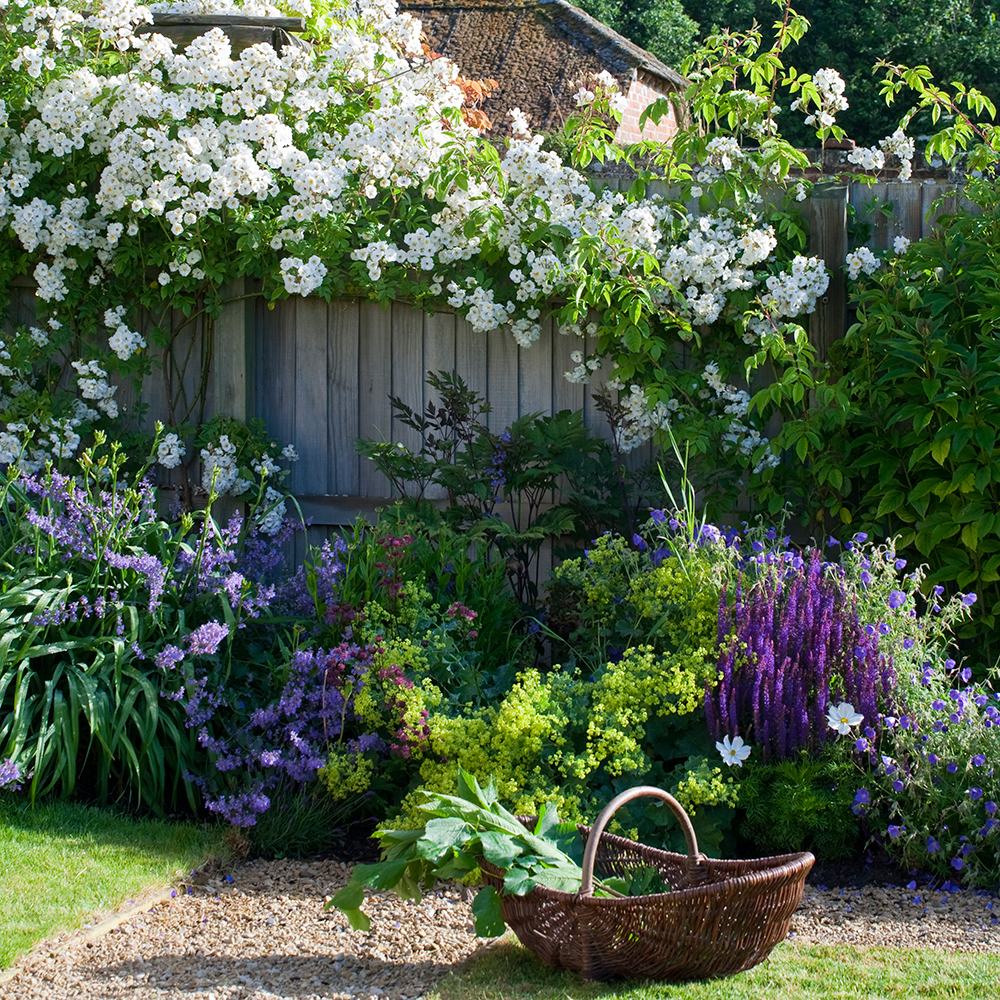
When filling your garden or patio with plants, pots and hanging baskets it's good to know plant types. Annuals germinate, grow and flower in just one season whereas Perennials will live on and come back season after season. A plant will usually come with a label telling you its name, growing instructions and where it will like to grow for example sunny or shady spots.
9. Slugs and snails will become enemy no.1
Only fellow gardeners will understand the frustration you'll feel once you've spent the money and put in the hard graft only to find your beautiful results are becoming breakfast, lunch and dinner to a various army of mini-beasts. Fear not, there are plenty of defences you can use to deter and force the blighters to retreat. You can try natural methods like manual inspection, collection and disposal, laying sharp egg-shells at roots or setting beer traps or you use chemical weapons like pellets and pesticides available from garden centres.
10. You can't dispose of garden waste in the normal bin
That's right you can't throw your mowed grass and tree cuttings in your normal dustbin. This is because it is disposed of differently and usually composted. Instead, you'll need to take it yourself to a rubbish and recycling centre in re-usable heavy duty waste bags or you can visit Gov.uk to find out what garden waste collection services your local council provides for you.
11. It's hard work but so worth it
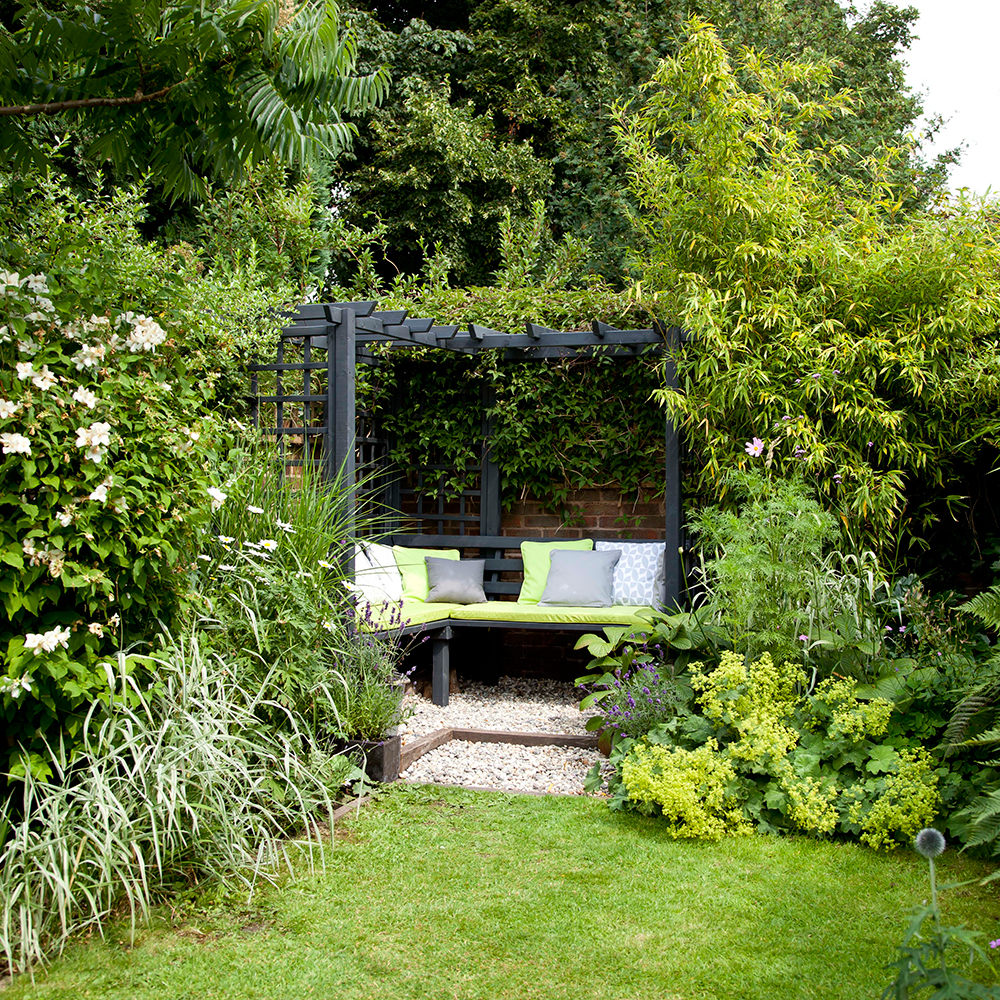
If you want to be a successful gardener you have to be in it for the long game as they take time and manual effort to mature and establish and you will always find something that needs tending too. But we can assure you the rewards and self-satisfaction will be worth it. Make sure you create a spot to sit and enjoy your hard work and beautiful garden.
12. You'll probably need a bath afterwards
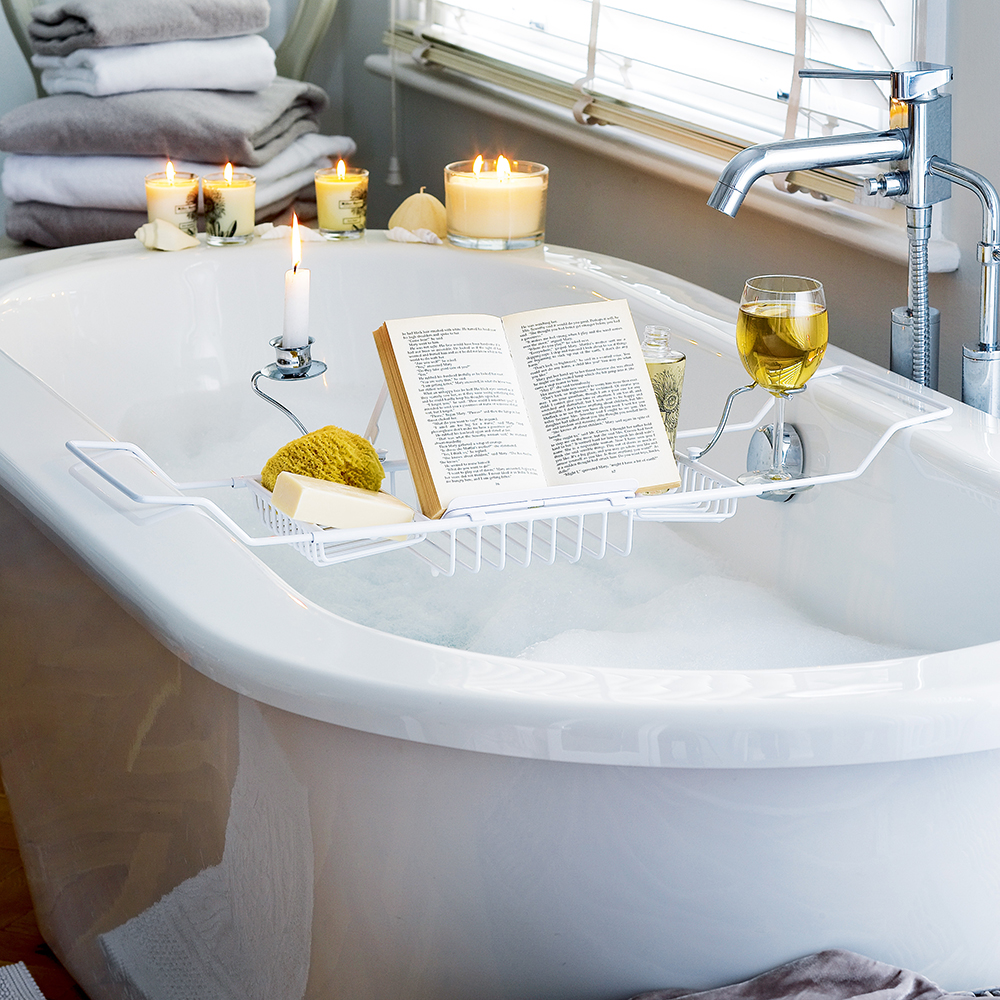
With all that mowing, sweeping, weeding, planting and pruning you're using all your muscle groups, so by the end of the day, you will have had a good workout and will probably ache. Be sure to relax in a warm bath to wash away the dirt, soothe weary muscles and aching joints so you are ready to start again tomorrow.
Do you have any other tips and tricks? Let us know in the comments below...
Rachel Homer has been in the interiors publishing industry for over 15 years. Starting as a Style Assistant on Inspirations Magazine, she has since worked for some of the UK’s leading interiors magazines and websites. After starting a family, she moved from being a content editor at Idealhome.co.uk to be a digital freelancer and hasn’t looked back.
-
 My go-to Ninja coffee machine is on sale for Easter weekend
My go-to Ninja coffee machine is on sale for Easter weekendIt makes coffee shop quality achievable at home
By Molly Cleary
-
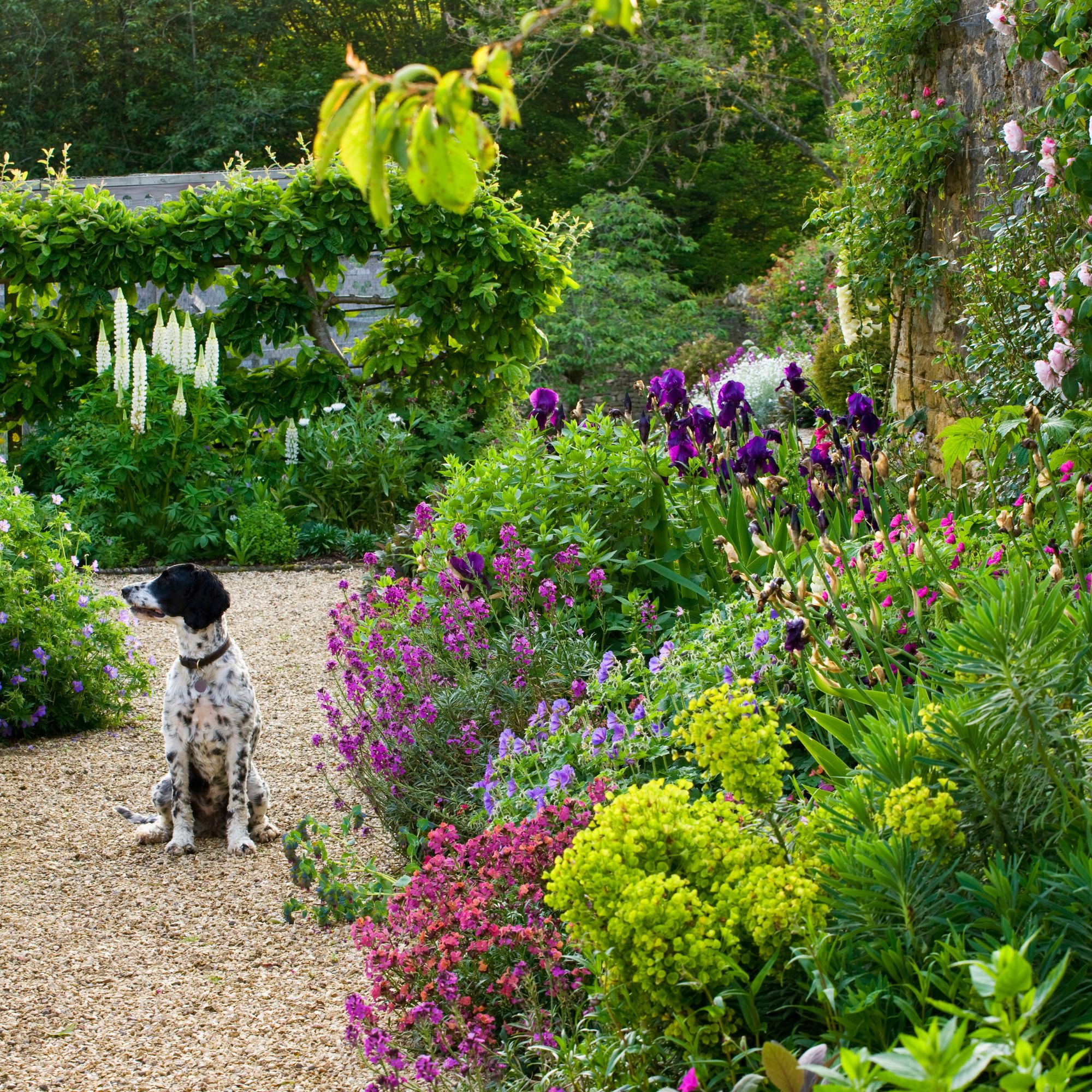 When to plant out annual flowering plants for vibrant, colourful garden borders – and give them the best start, according to experts
When to plant out annual flowering plants for vibrant, colourful garden borders – and give them the best start, according to expertsNot sure when to plant out annual flowering plants? We've got you covered...
By Kayleigh Dray
-
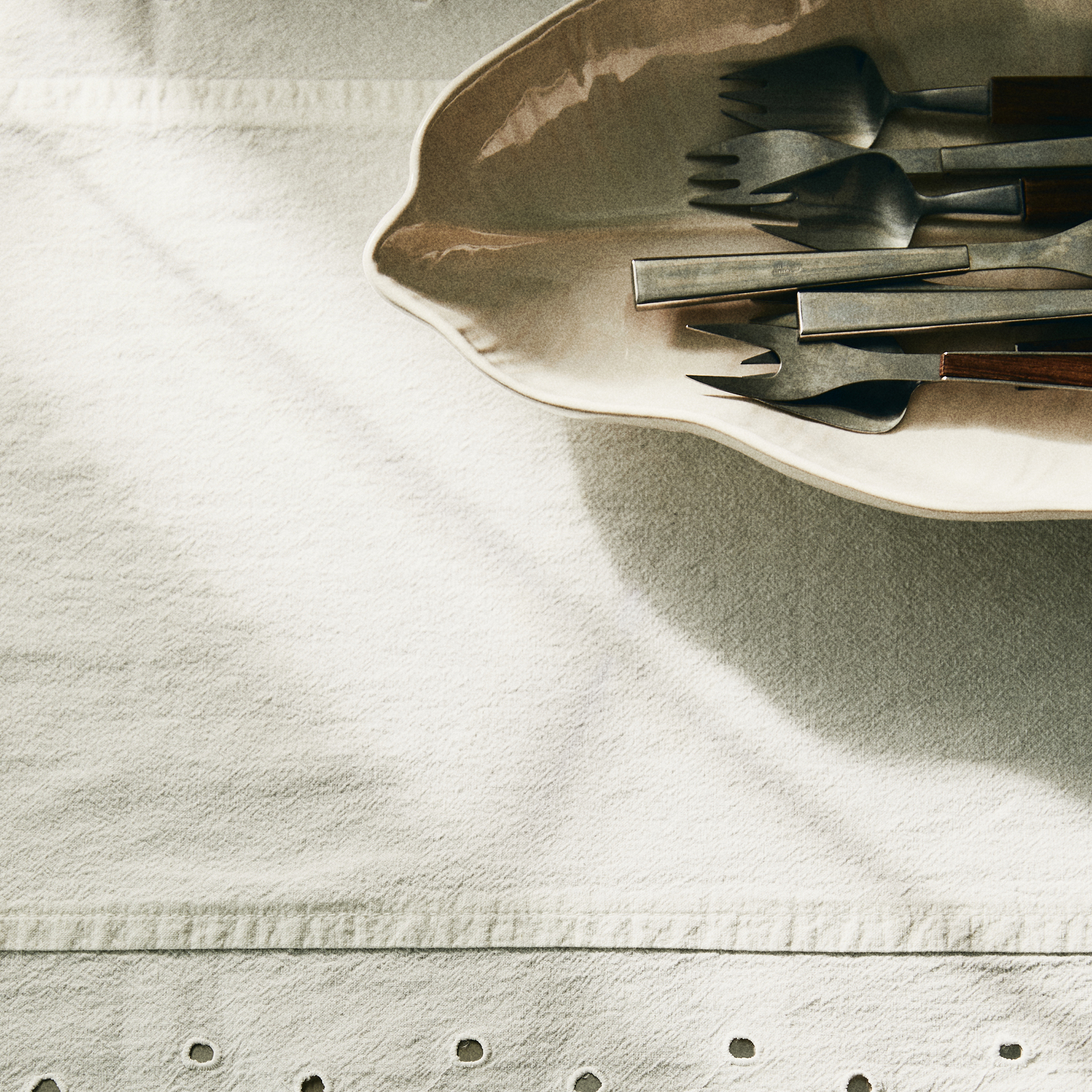 I'm a kitchen decor editor and didn't like this tableware trend - until I saw H&M Home's designer-look plates
I'm a kitchen decor editor and didn't like this tableware trend - until I saw H&M Home's designer-look platesThey made it easy to justify a new crockery set
By Holly Cockburn